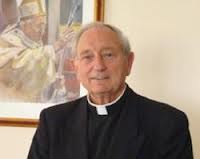JESUS THE HEALER (MK 5:21-43)
Sickness is assessed as a personal and social concern. It implies a wider compass than pure concern for the individual sick person. Sickness like sin is both a personal and social phenomenon. The people of God under God is nearly always the background in the thought of the biblical writers. Of course the world is taken to be a shared communal experience. God made this world and chose this people and was interested in this land as their land. The communitarian aspect is nearly always accentuated.
Miracles
Miracles were a part of the mindset of God’s people. They took it as foundational that God made the world and it was also foundational that God could treat the world in accordance with his wishes. There was no agonising then about him breaking the laws of nature. The Biblical writers knew very well the constants that make up nature. The sun rises every morning and sets every evening. The seasons follow their course. Life begins with birth and ends with death. People need food and drink and clothing and sustenance for a good life. And people need good relationships, shalom, that is peace and happiness and general well-being.
New Testament miracles presumed faith. And faith accepted the presence of a loving God despite sin. It included repentance and prayer. Compassion and love defined God, and remained part and parcel of the understanding of his relationship with the world and human beings. The creation of the world, and the salvation of Israel from Egypt, were basic to this thinking. Wonders were worked to help those in need. God who was compassionate did not ignore their suffering. What the Old Testament called ‘wonders’ figured always as help for people in extreme danger. God as love and compassion are the explanation of all the miracles of healing. Our first reading today sums it up: God takes no pleasure in the extinction of the living. To exist, to be and have life- for this he created all; the world’s created things have health in them (Wisdom 1:13-15).
Different Kinds of Healing in the New Testament
There was a universal belief in the presence of the devil in those days. Again today’s first reading asserts that “ the devil’s envy brought death into the world….but Hades holds no power on earth” (Wisdom 2:23ff.).Diabolical possession was considered a typical health disaster. Some distinctions were made then that would be normal in our day- epilepsy, depression, nervous breakdown. (These can be seen in the accounts at Mt 10;1 and Mk 3:10-11). All mental diseases seemed to have been categorised as diabolical inflictions. In Mark’s Gospel the devils cry out in alarm or with hatred as they perceive the presence of God or the presence of the reign of God in Jesus (Cf. Mk 1:24).
In the other healing miracles there is a considerable variety. Jesus often helped blind people to see (Mt 9:-27-31; Mk 8:22-26) and the deaf to hear ( Mt 11:5; Mk 7:32-37), and lame people to walk, and he cleansed lepers, cured fevers, checked a haemorrhage, and cured a man with a withered hand. And he raised several people from the dead, as in the case of the daughter of Jairus in today’s Gospel account. What the biblical texts do not do is to describe any of the healings as the result of special psycho-somatic powers in Jesus. There is minimal description of the way in which he cured people.
Teaching as Healing
There is great emphasis on his teaching as a healing and his healing as teaching. There is power in his word. He preaches good news to the poor. This is combined with healing them, and can be described as the holistic approach that is liberation and salvation. The healing of Jesus is the fulfillment of Old Testament prophecy. It is the sign of the actual presence of God’s kingdom and the overcoming of the kingdom of Satan. It is indicates Jesus’ own consciousness of being God’s messenger, sent to heal repentant sinners and reintegrate them as children of God. He was not just a soul-doctor or a spiritual doctor, he was also a physician caring for the body. This could be seen to fit in well with the best Greek medical practice of the time. The patient had to be attuned to what was good and right, avoiding all the greediness and graspingness injurious to health. The right order of things is at the foundation of this, and “the essential characteristics of the doctor’s intellectual attitude (was) that in treating the human body there was always considered the whole nature, the entire cosmos….” (Cf. W. Jaeger, Paideia , Vol II, p. 22ff.; p.192, Vol III, p.44.) In the Old Testament book of Ben Sira (38:1-15), there is a great belief in this kind of doctor: He who sins before his maker should come into the care of a physician (v.15). Because the physician also prays to be able to make the best use of his or her skill. This is the kind of doctor we would all appreciate even though legal restrictions may pertain about such professionals expressing their faith out loud these days. The main exceptions seem to be footballers who are allowed without inhibition to express their faith on entering the pitch and when they score!!
Conclusion
Health is basic to living, health of mind and body. We pray for it all the time, and we ask the Great Physician to help us. The priest celebrating the Mass prays silently just before receiving Holy Communion: “Lord Jesus Christ, With faith in your love and mercy, I eat your body and drink your blood, Let it not bring me condemnation, But health in mind and body.” All the faithful appreciate this prayer …it is a gift to participate in the life of a convent and nursing home where such is seen as right and proper because it is a community commitment.
Rev Richard J. Taylor
Spiritual Advisor MaterCare International
Boarbank Hall, Cumbria, UK









